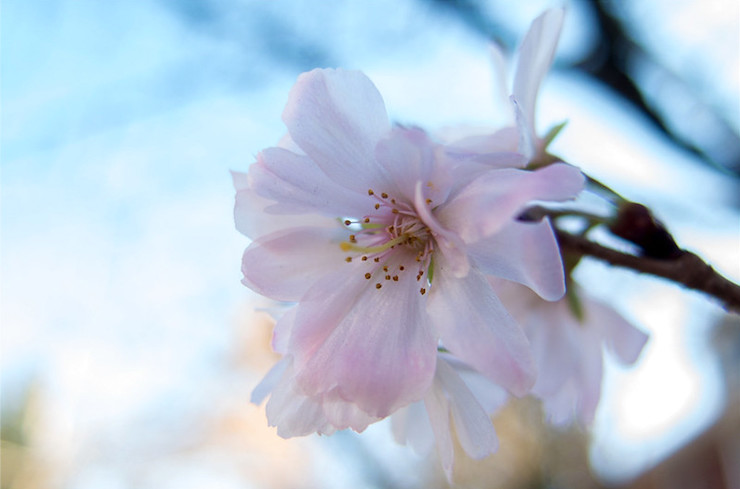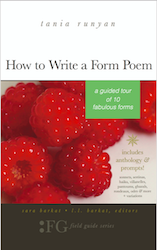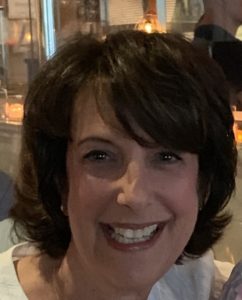Poet-a-Day: Meet Susan Rothbard
I first learned about Susan Rothbard while reading through sonnets that have appeared in Every Day Poems. When I came across “That New,” I immediately fell in love with Rothbard’s imagery and the natural way she employs the Shakespearean sonnet form to coax larger ideas of love and life from an everyday object—an apple.
Speaking of apples, Rothbard also happens to be a retired high school English teacher. As a former high school English teacher myself, I felt an immediate affinity for Rothbard and her work. Here’s a peek at her sonnet, “That New.” I’ll tempt you (apples, again!) with just a few lines for now. Then you can read the whole thing in How to Write a Form Poem.
That New (excerpt)
At the market today, I look for Piñata
apples, their soft-blush-yellow. My husband
brought them home last week, made me guess at
the name of this new strain, held one in his hand
like a gift …
—Susan Rothbard
Here’s what the poet has to say about her sonnet:
Tania Runyan (TR): Tell me a little about the origin story of “That New.”
Susan Rothbard (SR): The story at the beginning of the poem is a true one; my husband really did bring home a new strain of apple and asked me to guess its name (which I’m sure I couldn’t!), and I really did look for Piñata apples the next time I went to the market. That was the triggering idea for the poem.
TR: Why did you choose to write the poem as a sonnet? Or did the form “cause” the poem to happen?
SR: I don’t recall exactly why I chose to write this particular poem as a sonnet, but it’s a form I love and gravitate toward especially when I feel the need for momentum. It pushes me from line to line because I’m focusing less on content and more on rhyme and rhythm. I always compare writing in form to shopping in a boutique instead of a department store. With fewer choices, somehow, it’s easier to make a decision.
I find that often, the form helps me to let go of any preconceived ideas about where I might be heading with a poem and so allows me to surprise myself. That’s likely why the beginning of the poem is more rooted in reality and the second half is more imaginary. The form freed me to leave the reality behind and get to a different kind of truth.
TR: What do you hope poets can learn from a book like How to Write a Form Poem?
SR: I hope poets see that form is freeing. It’s counterintuitive, I know, but it’s true! I also think that people often think formal poetry is “old-fashioned,” but I hope that seeing contemporary poets writing in form will help readers to see the many ways in which it has evolved—and continues to evolve.
About Susan Rothbard
Susan Rothbard’s poetry has appeared in The Cortland Review, The Literary Review, Pif Magazine, Poet Lore, Nasty Women Poets Anthology, National Poetry Review, Naugatuck River Review, Twyckenham Notes, and other journals. Her work also has been featured in Kwame Dawes’s American Life in Poetry and on Verse Daily. She earned her MFA in creative writing from Fairleigh Dickinson University.
Hear Susan Read “That New”
(go to 1:13:36 to hear Susan read)
Photo by Levon Avdoyan, Creative Commons, via Flickr. Post by Tania Runyan.
Browse more Poet-a-Day
Browse 50 States of Generosity
Check out The Yellow Wall-paper Graphic Novel
BUY ‘HOW TO WRITE A FORM POEM’ NOW!
- Flowers of California: California Poppy - December 8, 2022
- Flowers of California: Lily of the Nile - October 13, 2022
- Flowers of California: Crape Myrtle - October 5, 2022



L.L. Barkat says
I hadn’t really considered that a sonnet fills the need for momentum. I wonder if all form poems do that in some sense… or if the sonnet does it especially well?
Love this poem, Susan. 🙂
Susan says
Thank you!
Megan Willome says
Susan, after hearing you read this poem last night for the Road Trip, I spent some more time with it and used it as a model to rework a long, sprawling poem that didn’t really work. Sara Barkat’s prompt to pay attention to the way your poem travels through time was also helpful.
Go sonnets!
Susan says
Wow, that’s great—I always struggle with reworking poems and tend to give up on them, so it’s heartening to hear and hopefully will push me to do the same. I can’t wait to get my copy of the book!
Tania Runyan says
This is where the magic happens–poets helping other poets become better poets! So pleased with the work both of you are doing!